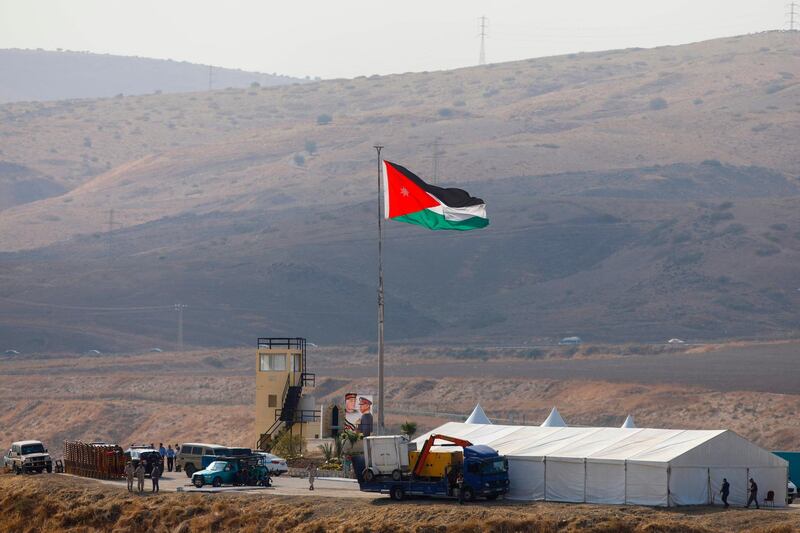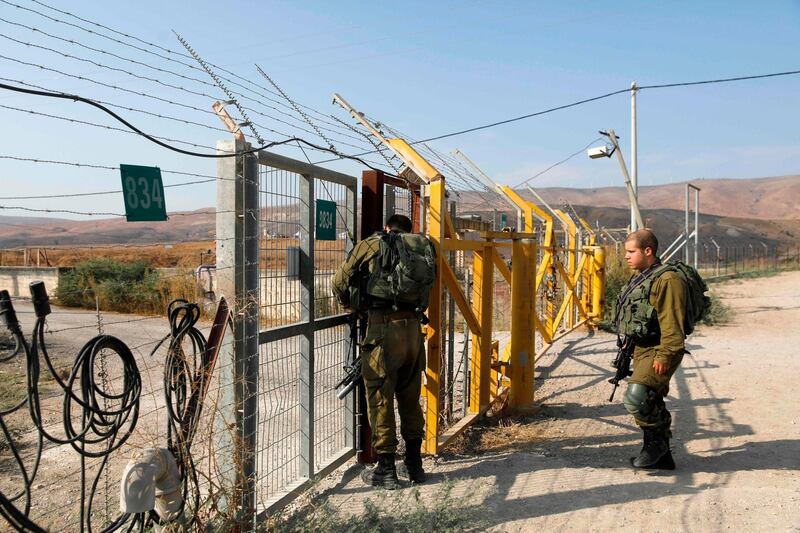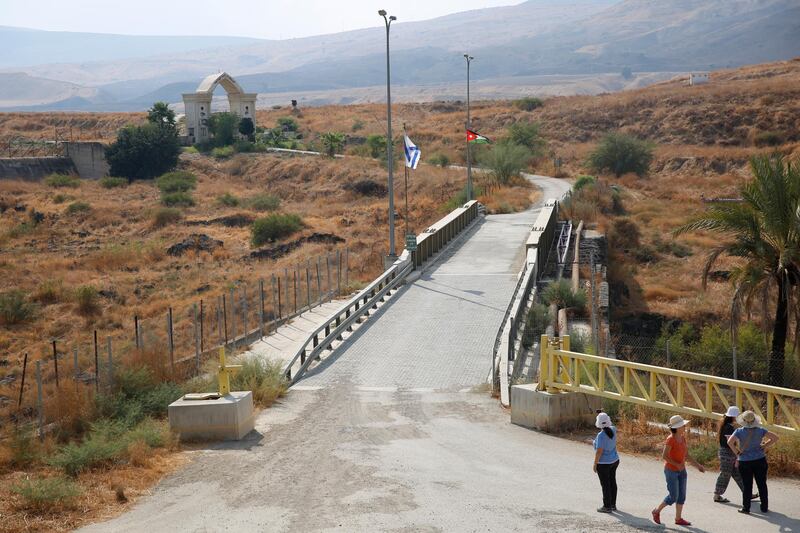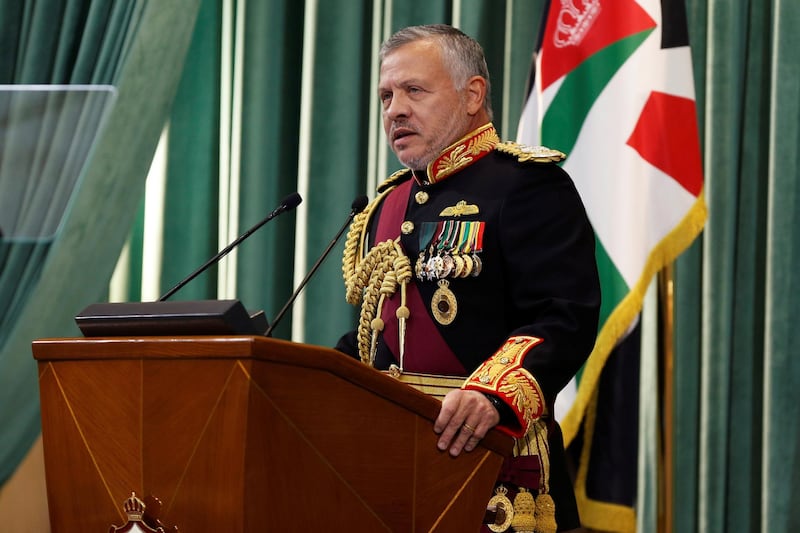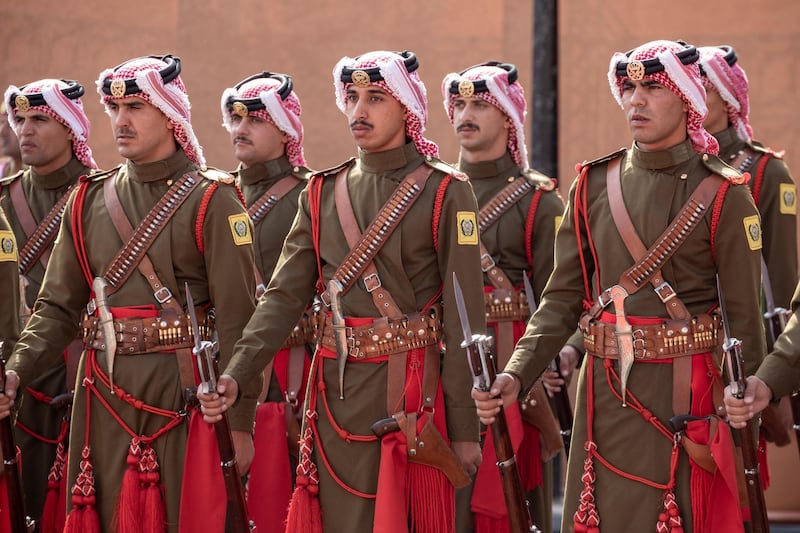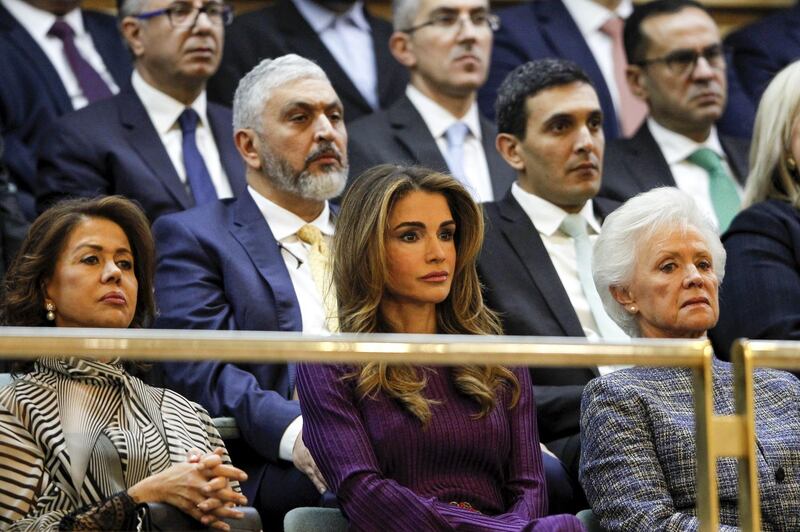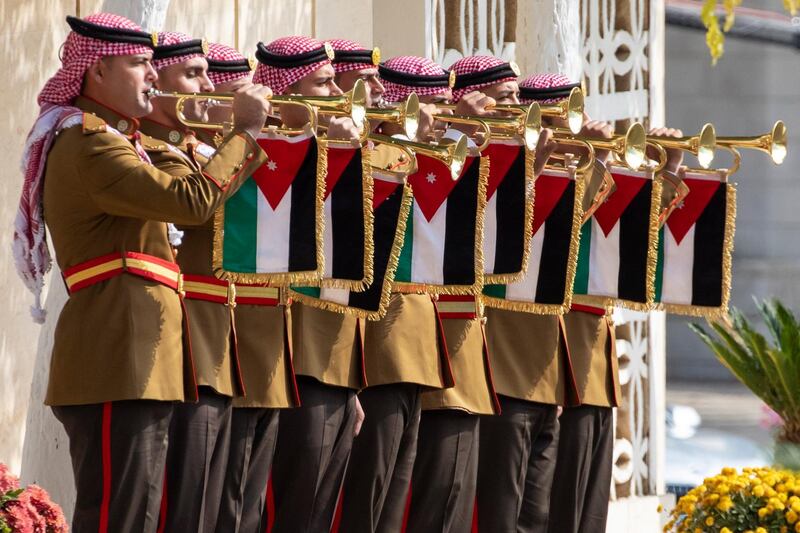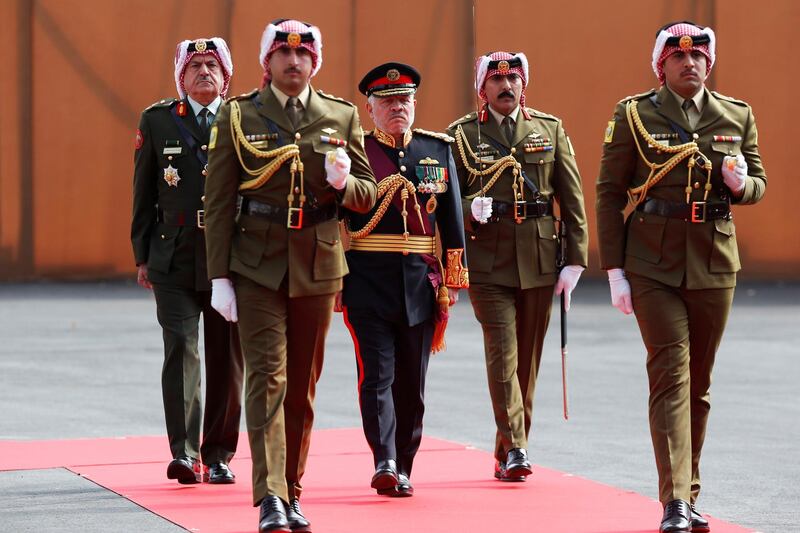Jordanian King Abdullah II declared territory had been reclaimed from Israel in the Jordan Valley on Sunday, marking a highly anticipated official return of the villages.
King Abdullah said in a speech from the throne that the villages of Baqoura and Al Ghamr, which were annexed to Israel under the 1994 peace treaty, had officially returned to Jordan.
“Today I announce the expiration of the peace treaty annexes of Al Ghamer and Baqoura and the imposition of our full sovereignty over every inch of those lands,” the king said to mark the opening of the fourth session of Parliament.
The announcement was interrupted by thunderous applause and a standing ovation from MPs.
Moments later, the TV coverage of his address cut to images of Jordanian soldiers raising the national flag at Baqoura, near the Israeli border.
King Abdullah focused largely on the economy, pledging a revision of taxes and Customs fees and a new approach to the revive struggling economy, to reassure anxious Jordanians that better days were ahead.
But it was his remarks on the returned villages that caused the most celebration.
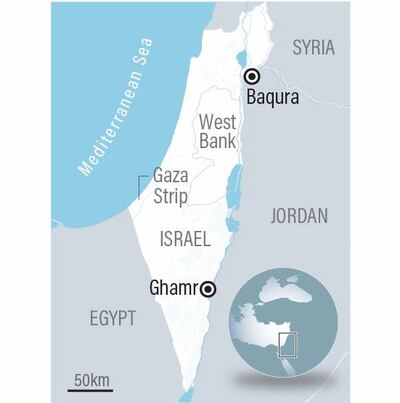
“When His Majesty mentioned the return of Baqoura it received more applause than anything else, even tax cuts,” says Oraib Rantawi, director of Al Quds Centre for Political Studies in Amman.
“This issue is tied to national pride, Jordanian territory and growing frustration with Israel, and people across all sectors of society are happy to have this victory and this land returned to the Jordanian people.”
King Abdullah acknowledged economic anxieties among Jordanians, who are facing a rising cost of living, an economic recession and a record 19 per cent unemployment rate.
“I know and feel the hardships of every single one of my dear fellow Jordanians,” he said.
“I see it in the eyes of a father who wants to put bread on the table, the unemployed young man worried about his future, and military and civilian pensioners.
“Every one of you has a family to provide for, and I am responsible for an entire nation.
“Today, many are asking: 'Where are we headed?' To them I say: 'Jordan is moving steadily forward, the most difficult reforms are behind us, and a promising future lies ahead'.”
King Abdullah said the government has released the first part of a new economic package designed to lessen the burden on Jordanians and stimulate the economy after two years of tax-heavy austerity measures to reduce the national debt.
He pledged that further programmes would be announced by the government, which was reshuffled last week.
“I hereby direct the government to work vigorously and efficiently to take further bold measures to advance the national economy,” King Abdullah said.
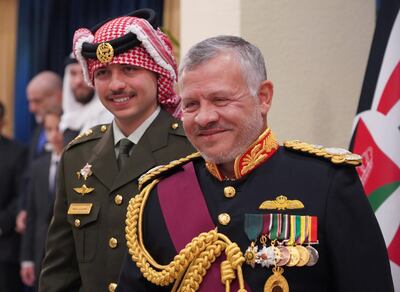
“The government will announce other detailed packages, including a review of regulations and legislation related to taxes and Customs, in order to facilitate business and reduce the burden on citizens."
Economists, observers and business owners agreed that rising taxes on goods and fuel had been a major obstacle to growth in Jordan.
The government estimated in 2018 that the average Jordanian paid 27 per cent of their income in taxes and fees.
Those close to the palace say that after listening to the concerns of citizens and members of the business community over the past few months, the monarch has been pushing hard for a reorientation of economic policy.
King Abdullah wants it to turn away from a revenue-first approach to one that encourages consumer confidence and increases citizens’ purchasing power to reignite growth in the country.
The push comes amid forecasts of GDP growth for 2019 that may drop below 2 per cent, a budget deficit of more than $1 billion, and warnings from several sectors that they are entering a recession.
“This shows there is a deep understanding by His Majesty that the financial approach adopted by previous governments focusing mainly on taxation has not been successful,” Mr Rantawi said.
“The king’s statements said that before the end of the year we will see not only see an increase in salaries for civil servants, but tax cuts and reduced Customs fees to stimulate the economy.”
